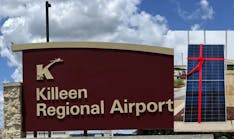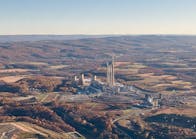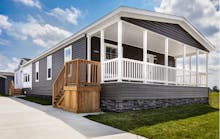DOE Announces $400M in Grants for States to Adopt and Implement Building Energy Codes
The U.S. Department of Energy (DOE) has released program guidance, Administrative and Legal Requirements Document (ALRD), and opened applications for $400 million in formula funding to states and territories for adopting and implementing building energy codes. Through this, the DOE hopes to reduce utility bills, increase efficiency, lower greenhouse gas emissions, and make buildings more resilient to climate disasters.
The announcement, in support of President Biden’s Investing in America agenda and funded by President Biden’s Inflation Reduction Act (IRA) worth $1 billion, revealed that states can access the funds for the adoption and implementation of the latest building energy codes and zero energy codes for cleaner, more efficient buildings across the country.
States updating to the latest model energy codes will save consumers up to $178 billion and reduce about 2 billion metric tons of CO2 emissions, equivalent to removing over 445 million gas powered cars from the road, over 30 years.
“A transition to a clean energy economy is about more than adding clean energy to the electric grid; we also need to revitalize, and fortify, the infrastructure we have now,” says U.S. Secretary of Energy Jennifer M. Granholm. “Thanks to President Biden’s Investing in America agenda, this funding will ensure that states and local communities have the tools necessary to lead the way in increasing the performance and the overall health of buildings through energy codes, vastly improving infrastructure across the country and improving local communities' health and well-being.”
Under the ALRD, $240 million will be available to adopt and implement the latest building energy code, the 2021 International Energy Conservation Code (IECC) for residential buildings, and the ANSI/ASHRAE/IES Standard 90.1–2019 for commercial buildings, or other codes that achieve equivalent or greater energy savings. $160 million will be available to adopt and implement the zero energy provisions in the 2021 IECC or other codes with equivalent or greater energy savings.
The ALRD will not only support states in adopting, implementing, enforcing, and measuring compliance rates of specified building energy codes but also train and educate their workforce to build localized capacity.
The activities will improve residential and commercial new construction and major renovations and help transition the infrastructure in these states to include more efficient, more resilient decarbonized buildings for all. By November 21, interested states will have to reserve their funding for these awards with letters of intent to the DOE.
The DOE is looking after the administration of the ALRD, ensuring nonprofits, industry leaders, and states are prepared to deliver the energy efficiency projects required to decarbonize buildings and create inclusive workforce training initiatives through the Office of State and Community Energy Programs.
While the program advances President Biden’s Justice40 Initiative, ensuring 40% of the overall benefits of federal clean energy investments for energy-burdened and disadvantaged communities, it also works together with President Biden’s National Initiative to Advance Building Codes to adopt modern building codes for protection against extreme weather events and save communities an estimated $1.6 billion a year in avoided damages.
The DOE plans to announce complimentary competitive funding to provide direct support to states and local governments with code adoption authority for more innovative code approaches, including building performance standards.





